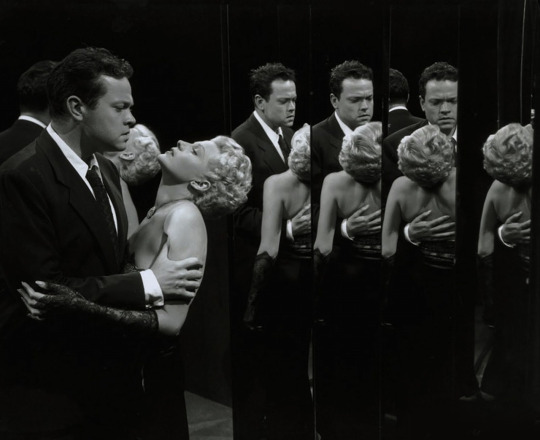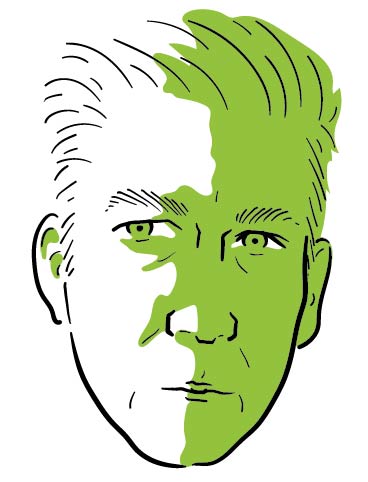
A still from Orson Welles’ 1946 film, Lady from Shanghai
An Interview with Pere Ubu’s David Thomas
In 1974, musician, composer, writer, actor, director (etc.), David Thomas co-founded the seminal Cleveland-based punk band Rocket from the Tombs. The group disbanded after only a year, but left behind a handful of underground standbys like “Sonic Reducer,” “Final Solution,” and “Heart of Darkness.” Thomas went on to found the singular avant-garage band Pere Ubu, whose first album, The Modern Dance, was released in 1978. Still beyond simple categorization to this day, Pere Ubu placed a greater emphasis on improvisation and experimentation than your standard punk outfit, combined with an expanded and varied palette of instruments and Thomas’ trademark nasal moan, murmur and yelp. Over the next four decades, along with releasing nearly twenty Pere Ubu albums, Thomas undertook countless side and solo projects (most recently David Thomas and Two Pale Boys), worked in theater, wrote some books, and gave some lectures.
From the beginning, Thomas’ work has been marked by its use of myriad cultural references, everything from Brian Wilson and hardboiled pulp novelist Jim Thompson to Carl Stalling and Thomas Pynchon. Beyond the musical and literary references, the movie references—specifically to B films—are inescapable. Pere Ubu has performed live underscores for screenings of Roger Corman’s X: The Man With the X-Ray eyes, Jack Arnold’s science fiction classic It Came From outer Space, and Herk Harvey’s 1961 no-budget horror masterpiece Carnival of Souls. He’s even described his assorted projects in cinematic terms, Ubu as a Hollywood blockbuster in cinemaScope and his solo work as indie art house films. I interviewed Thomas about the movies via email shortly after he returned from the latest Pere Ubu tour.
—Jim Knipfel
THE BELIEVER: The references that have made their way into your work since Rocket From the Tombs seem to reflect a distinct affinity for low-budget genre pictures.
DAVID THOMAS: It’s true I have an affinity for B movies—those sort of movies can approach a folk art status because they are often one guy’s unique vision untrammeled by corporate interference and such things as continuity or a cohesive narrative. (Reading Raymond Chandler too much at a young age set that in stone.) I’m not really a film enthusiast in the way many are.
BLVR: Still, over the past forty-plus years, a woefully incomplete list of films cited directly or obliquely in your work includes Thirty Seconds Over Tokyo, Panic in Year Zero, Apocalypse Now, When Worlds Collide, Blue Velvet, Bring Me the Head of Alfredo Garcia and The Day the Earth Stood Still. Pere Ubu’s 2013 album took its title from Orson Welles 1946 noir film...
You have reached your article limit
Sign up for a digital subscription and continue reading all new issues, plus our entire archives, for just $1.50/month.
Already a subscriber? Sign in





